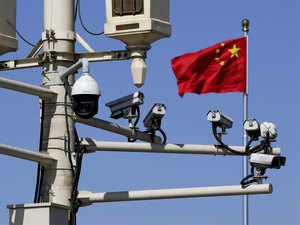Chinese investment in Europe: A story of cash and concerns

PARIS: Chinese firms have plowed at least 145 billion euros ($164 billion) into Europesince 2010, but investment has been slowing recently as several European governments tighten rules on acquisitions by foreign firms.
As President Xi Jinping makes a crucial visit to Italy promoting China’s new Silk Road project, the EU remains divided over the best approach towards Beijing.
Chinese direct investment into the European Union in 2010 totaled just 2.1 billion euros. That climbed rapidly to 20.7 billion in 2015 and then jumped to 37.2 billion in 2016, according to a study by Rhodium Group, as Chinese firms went on a buying spree.
Sweden’s Volvo Cars, Italian tyre-maker Pirelli, French holiday group Club Med and German machine tool firms Kuka and KraussMaffei have all passed into Chinese hands this decade.
But the volume of Chinese investments has fallen since 2016, declining to 29.1 billion in 2017 and 17.3 in 2018.
The study’s authors put the drop down to Beijing clamping down on investments made by overindebted firms as well as tightening regulations in Europe.
Since 2000, 60 percent of Chinese investment in Europe has come from state-controlled groups.
While concerns about Chinese investment have grown in France and Germany — countries in southern and eastern Europe still have the welcome mat out.
Rome is ready to sign up to China’s new Silk Road project, a $1 trillion infrastructure project, following fellow EU nations Greece, Hungary, Poland and Portugal.
Athens ceded its key port of Piraeus to China’s freight giant Cosco, which also controls container ports in Valencia and Bilbao in Spain.
Portugal strenghtened its ties with China during the financial crisis, with Chinese investment rising to 6 billion euros, according to Rhodium, as Chinese firms made investments into its leading private bank, an insurance firm and the electricity network operator.
Lisbon hasn’t opposed China Three Gorges trying to take over the nation’s leading electricity firm, Energias de Portugal (EDP).
In the Czech Republic, a visit by Xi in 2016 sealed massive investments from energy firm CEFC in media firms, an airline and a football club. CEFC’s owner Ye Jianming was named an economic adviser to Czech President Milos Zeman.
In February, the European Parliament gave its green light to new powers to screen foreign takeovers in Europe’s strategic sectors, and member states signed off on the measure this month.
Pushed by France, Germany, and originally Italy, the measure was a response to concerns that foreign firms are snapping up key technologies.
While EU member states retain the final decision, they will have to supply, under certain conditions, information on foreign investment to other member states if public order or security are concerned.
But some 14 EU countries already have their own measures to screen foreign investments, and the rules are tightening.
Following the Chinese acquisition of Kuka, a leading-edge producer of robots for factories, Germany lowered from 25 to 10 percent the stake threshold above which it can block any foreign investor from buying more shares.
China’s Yantai Tahai abandoned an attempt to purchase German machine tools firm Leifeld in August following pressure from the authorities.
According to Rhodium, nearly half of Chinese investments in 2018 were in sensitive sectors.
The United States, which is locked in a trade war with China, has stepped up its warnings.
Washington has put particular pressure on Germany, threatening to stop sharing intelligence if Berlin lets Chinese equipment into next-generation mobile phone networks.
The United States also publicly voiced this month its opposition to China acquiring Energias de Portugal.
A White House official, Garrett Marquis, earlier this month tweeted that there is “no need for Italian government to lend legitimacy to China’s infrastructure vanity project”.
[“source=economictimes.indiatimes”]




